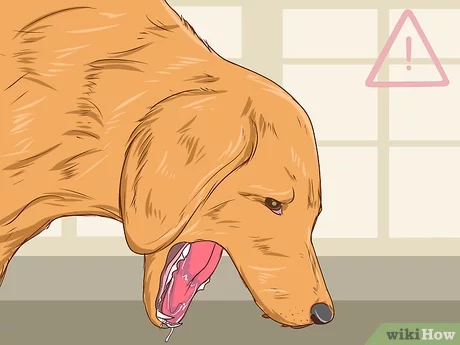Will Dogs Whiskers Grow Back
The Curious Case of Dog Whiskers: Will They Grow Back?
Have you ever wondered why dogs have whiskers? These long, stiff hairs that protrude from their snouts are not just for show. Whiskers, also called vibrissae, are sensory organs that help dogs navigate their environment and communicate with other animals. They detect subtle changes in air currents, temperature, texture, and motion, providing valuable information about potential prey, predators, or companions.
But what happens when a dog loses its whiskers? Is it a big deal? Will they grow back? These are common questions among dog owners who notice that their pets’ whiskers are missing or damaged. In this article, we will explore the fascinating world of dog whiskers and answer the burning question: will they grow back?
First, let’s clarify what we mean by “whisker loss.” Dogs can lose their whiskers naturally through shedding or trimming, or accidentally through trauma or disease. Shedding is a normal process where old hairs fall out and new ones grow in their place. Trimming is a cosmetic procedure where groomers or owners cut the whiskers for aesthetic reasons or to prevent tangling. Accidental loss can occur if the dog rubs its face against rough surfaces, gets caught in objects like fences or branches, or suffers from skin conditions that cause hair loss.
Regardless of how the whiskers were lost, the key question is whether they will regrow. The answer is yes and no.
Yes: Whiskers can regrow if only the follicles are intact. Each whisker is rooted in a tiny sac-like structure called a follicle that contains nerves and blood vessels. The follicle is surrounded by muscles that allow the whisker to move independently and sense different stimuli. If only the shaft of the whisker is broken or cut off, the follicle will generate a new hair over time. It may take several weeks or months for the new whisker to reach its full length, which can range from 1 to 6 inches depending on the breed and individual dog.
No: Whiskers may not regrow if the follicles are damaged or destroyed. If the follicle is crushed, burned, infected, or otherwise traumatized, it may not be able to produce a new hair. In some cases, scar tissues may form around the damaged follicle and prevent any regeneration. The loss of whiskers can have various effects on dogs’ sensory abilities and behavior. Some dogs may become more cautious or anxious without their usual whisker feedback, while others may adapt quickly or compensate with other senses like vision or smell.
Now that we know the basics of whisker growth and loss, let’s delve deeper into some related topics.
Subtopic 1: Why do dogs need whiskers?
As mentioned earlier, dogs use their whiskers for several purposes:
– To detect prey: Whiskers help dogs locate small animals like rodents by sensing their movements and vibrations in the air or ground.
– To avoid obstacles: Whiskers act as “feelers” that warn dogs of potential collisions with walls, furniture, or other objects in their path.
– To communicate with other dogs: Whiskers can convey social signals such as aggression, fear, playfulness, or submission to other dogs.
– To sense emotions: Whiskers can pick up subtle changes in humans’ facial expressions and tone of voice, which can affect how dogs react to them.
Without their whiskers, dogs may struggle to perform these tasks accurately or efficiently. They may bump into things more often, miss out on prey opportunities, misinterpret social cues from other dogs or humans, or feel less secure in their surroundings.
Subtopic 2: How can you prevent whisker damage?
While some forms of whisker loss are inevitable or natural, others can be prevented or minimized. Here are some tips on how to avoid whisker damage:
– Don’t trim the whiskers: Unless it’s necessary for medical reasons or approved by a veterinarian, you should not cut or trim your dog’s whiskers. Whiskers serve important functions that outweigh any aesthetic concerns.
– Avoid tight collars: Collars that are too tight can rub against the neck and damage the whiskers around the muzzle. Make sure your dog’s collar is snug but not constricting, and check it regularly for any signs of irritation.
– Protect from rough surfaces: Dogs that dig, crawl under fences, or play in dense vegetation may encounter rough surfaces that can break their whiskers. Try to limit their exposure to such environments or supervise them closely if they do.
– Treat skin conditions promptly: Some skin conditions like mange, ringworm, or allergies can cause hair loss including whiskers. If you notice any unusual patches of hairless skin or excessive scratching and licking, take your dog to a vet for diagnosis and treatment.
Subtopic 3: Can dogs live without whiskers?
While dogs rely heavily on their whiskers for sensory input and communication, they can survive without them. In fact, some breeds like Chinese Crested and Xoloitzcuintli don’t have visible whiskers due to genetic traits. These dogs have adapted to other ways of sensing their environment and interacting with other animals.
However, if a dog loses its whiskers suddenly or permanently due to injury or disease, it may experience some discomfort or behavioral changes. For example, it may become more skittish or reactive to unexpected stimuli, less confident in exploring new places, or less responsive to human cues. Therefore, it’s best to prevent whisker loss whenever possible and seek professional advice if you notice any significant changes in your dog’s behavior or appearance.
Conclusion:
In conclusion, dog whiskers are not just decorative features but vital sensory organs that help dogs navigate their world and communicate with other creatures. They can regrow if the follicles are intact, but may not if they are damaged or destroyed. Therefore, it’s important to protect your dog’s whiskers from unnecessary harm and monitor their health and behavior regularly. With some care and understanding, you can ensure that your dog always has a good “whisker sense” of its surroundings and companions. And remember, if someone asks you “Will dogs whiskers grow back?” you can say confidently: “It depends.”



